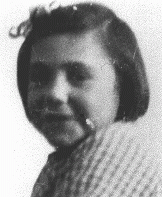You searched for: 5G基站源码搭建定制开发【TG���������@EK7676】平台包网搭建5G基站源码搭建定制开发【TG���������@EK7676】平台包网搭建2S6C34nkOD
<< Previous | Displaying results 421-430 of 507 for "5G基站源码搭建定制开发【TG���������@EK7676】平台包网搭建5G基站源码搭建定制开发【TG���������@EK7676】平台包网搭建2S6C34nkOD" | Next >>
-
Elsa (Eliska) Skutezka Kulkova
ID CardElsa was the eldest of three children born to Jewish parents in Brno, the capital of Moravia, where her father ran a successful shipping company. In 1920 she graduated from a German-language secondary school. She married and moved to Bratislava, but the marriage was unsuccessful and Elsa returned to Brno in 1926, where she opened a millinery business. 1933-39: On May 24, 1933, Elsa married Robert Kulka and the couple settled in Robert's hometown of Olomouc. Their son, Tomas, was born a year and a day…
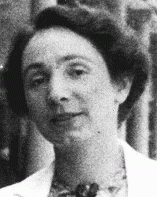
-
Lidia Lebowitz
ID CardThe younger of two sisters, Lidia was born to Jewish parents living in Sarospatak, a small town in northeastern Hungary. Lidia's parents owned a successful dry goods business. At the time, ready-made clothes were still rare in the countryside. Townspeople and local farmers would purchase fabric at the Lebowitz store and then take it to their tailor or seamstress to be sewn into clothes. 1933-39: Lidia was 2 when her Aunt Sadie, who had immigrated to the United States many years earlier, came to visit…
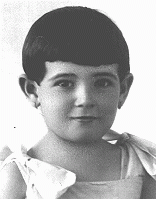
-
Ema Schwarzova Skutezka
ID CardOne of two children born to religious Jewish parents, Ema was raised in the small Moravian town of Lomnice, where her mother ran a general store. In 1901 Ema married Eduard Skutecky, a regular customer at her mother's store. The couple settled in the city of Brno, where they raised three children. Eduard ran a shipping company. 1933-39: By 1933 Ema's three children were grown and had moved out. Four years later her husband passed away, and Ema moved in with her eldest daughter, Elsa. Elsa and her husband…
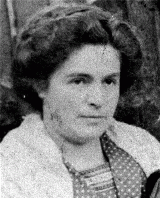
-
Karl Gorath
ID CardKarl was born in the small town of Bad Zwishenahn in northern Germany. When he was 2, his family moved to the port of Bremerhaven. His father was a sailor and his mother became a nurse in a local hospital. After his father died, Karl continued to live with his mother. Karl was 20 when he began training as a deacon at his parish church. 1933-39: Karl was 26 when his jealous lover denounced him and he was arrested at his house under paragraph 175 of the criminal code, which defined homosexuality as an…
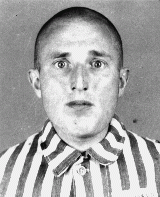
-
Franz Wohlfahrt
ID CardThe eldest of six children born to Catholic parents, Franz was raised in a village in the part of Austria known as Carinthia. His father was a farmer and quarryman. Disillusioned with Catholicism, his parents became Jehovah's Witnesses during Franz's childhood and raised their children in their new faith. As a teenager, Franz was interested in painting and skiing. 1933-39: Franz was apprenticed to be a house painter and decorator. After Nazi Germany annexed Austria in 1938, like other Jehovah's…
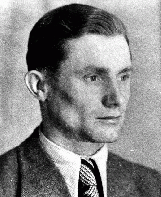
-
Renee Schwalb
ID CardVienna, home to some 175,000 Jews before World War II, was a major center of European Jewry. Vienna was also the intellectual heart of the Palestine resettlement movement. Most of the city's Jews lived in two large districts on the east side of the Danube Canal. Renee's father owned a prosperous men's clothing store in the city. 1933-39: German forces occupied Austria in March 1938. Anti-Jewish measures were quickly imposed. Renee's father was prohibited from doing business and his store was seized. He…
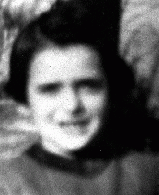
-
Frida Adler
ID CardFrida was the eldest of three daughters born to Jewish parents in a village in the easternmost province of Czechoslovakia. When Frida was 2, her parents moved to Liege, Belgium, a largely Catholic industrial city with many immigrants from eastern Europe. Frida attended Belgian public schools and grew up speaking French. 1933-39: In Liege Frida's family lived in an apartment above a cafe and across the street from a Catholic church. Frida had many Catholic girlfriends at school. At home she spoke Yiddish…
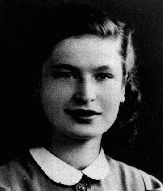
-
Morris Zaidband
ID CardMorris was one of five children born to a Jewish family in the Polish town of Oswiecim, 33 miles west of Cracow [Krakow]. Morris' father sold ladies' undergarments. Morris worked as a jeweler. 1933-39: In September 1939 Germany invaded Poland. Morris's family started to flee eastward but two weeks later the Germans overtook them and they were sent home. When they returned, the Germans were already beating Jews who didn't show them "respect." One day, when German guards came to their house to deport…
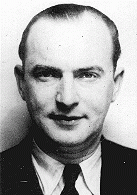
-
Yakov Biber
ID CardYakov was the youngest of four children born to a poor religious Jewish family in the village of Matsiov in Ukraine. Six years after Yakov was born, Matsiov was ceded to Poland. When Yakov was 14 his mother died and he had to quit school in order to work. Yakov was a Zionist and hoped to settle in Palestine [Yishuv]. 1933-39: In the Young Pioneers, a Zionist group, Yakov directed the dramatic productions the group put on to raise money for the Zionist cause. It was in the Young Pioneers that he met Chava,…
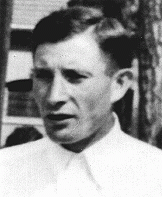
-
Manon Marliac
ID CardManon's Christian parents lived in Paris. Roger Marliac, her father, originally from a wealthy family, supported his family by selling produce at small marketplaces. Margarit, her mother (called Maguy by her friends), had a university degree in science. The family lived in a large apartment in a fashionable neighborhood near the Eiffel Tower. 1933-39: Manon, the Marliacs' second child, was born in 1937. She was 2 years old when her father was drafted into the French army as the country mobilized for a…
